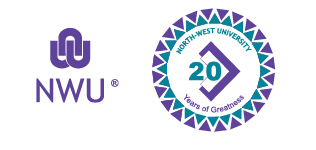There is no denying the fact that Nigeria and South Africa are leading the battle for food security and food sovereignty in Africa.
According to the World Health Organisation, approximately 27,4% of the population in Africa was classified as severely food insecure in 2016, which is almost four times as high as any other region. Alarmingly, food insecurity is on the rise, specifically in sub-Saharan Africa.
North-West University (NWU) academic and researcher Prof Lere Amusan recently shared his research on these challenges in his inaugural lecture titled “Feeding the people, uplifting the continent: Nigeria and South Africa in the struggle for food security in Africa”.
Prof Amusan said that, despite the introduction of the Maputo (2003) and Malabo (2014) declarations – where 10% of the budget of every African state should be committed to agriculture – only a few states are consistently complying.
During his lecture he also addressed the issue of large-scale farming as appose to the agro-ecological approach to farming that rural farmers are familiar with.
According to Prof Amusan, many students of Development Studies consider the latter as an ideal approach to maintaining biodiversity of the African continent – a continent that is globally regarded as the food basket for the rest of the world in the 21st century.
“Through the development of small-scale farming, healthy organic food will be made available to the growing African population,” he said. He added that the consumption of inorganic food brings about health challenges, and that chemical applications in farming should be a thing of the past.
“I am of the view that Nigeria and South Africa should identify their spheres of influence and should take the lead in providing food security on the continent,” said Prof Amusan.
“This has been the approach of Germany and France within the European Union, which contributes to the stability of the continent despite the Brexit challenge inflicted by Britain.”
“Addressing food security holistically by moving upward to address food sovereignty in Africa, could offer solutions to issues such as debt peonage, starvation, unemployment and gender violence – as called for by Sustainable Development Goals 1, 2, 5, 13 and 14.
“This could be possible if the African Union (AU) operates as a supra-national institution, in line with European Union’s approach to European development,” he concluded.
More about the academic
Prof Amusan obtained his BSc and MSc degrees in international relations in 1990 and 1992 respectively. His interest in the political economy of Africa started during his undergraduate years when he wrote his research project on north-south relations.
After completing a PhD in international politics at Unisa, a former lecturer, Prof Sola Akinrinade, invited him to start the Department of Political Science and International Relations at the newly created Osun State University (OSU) in Nigeria in 2007.
After five years with the OSU, he was appointed as a professor of international relations at the NWU in January 2013.
Prof Amusan’s research focus areas include food security, climate change, gender politics and theories of international relations. Most recently, his main research focus is food security and food sovereignty in Africa.

Here are Prof Lere Amusan (in the middle) with Prof Pamela Maseko, executive dean of the Faculty of Humanities, and Prof Mpho Chaka, deputy dean for teaching and learning at the Faculty of Humanities.
